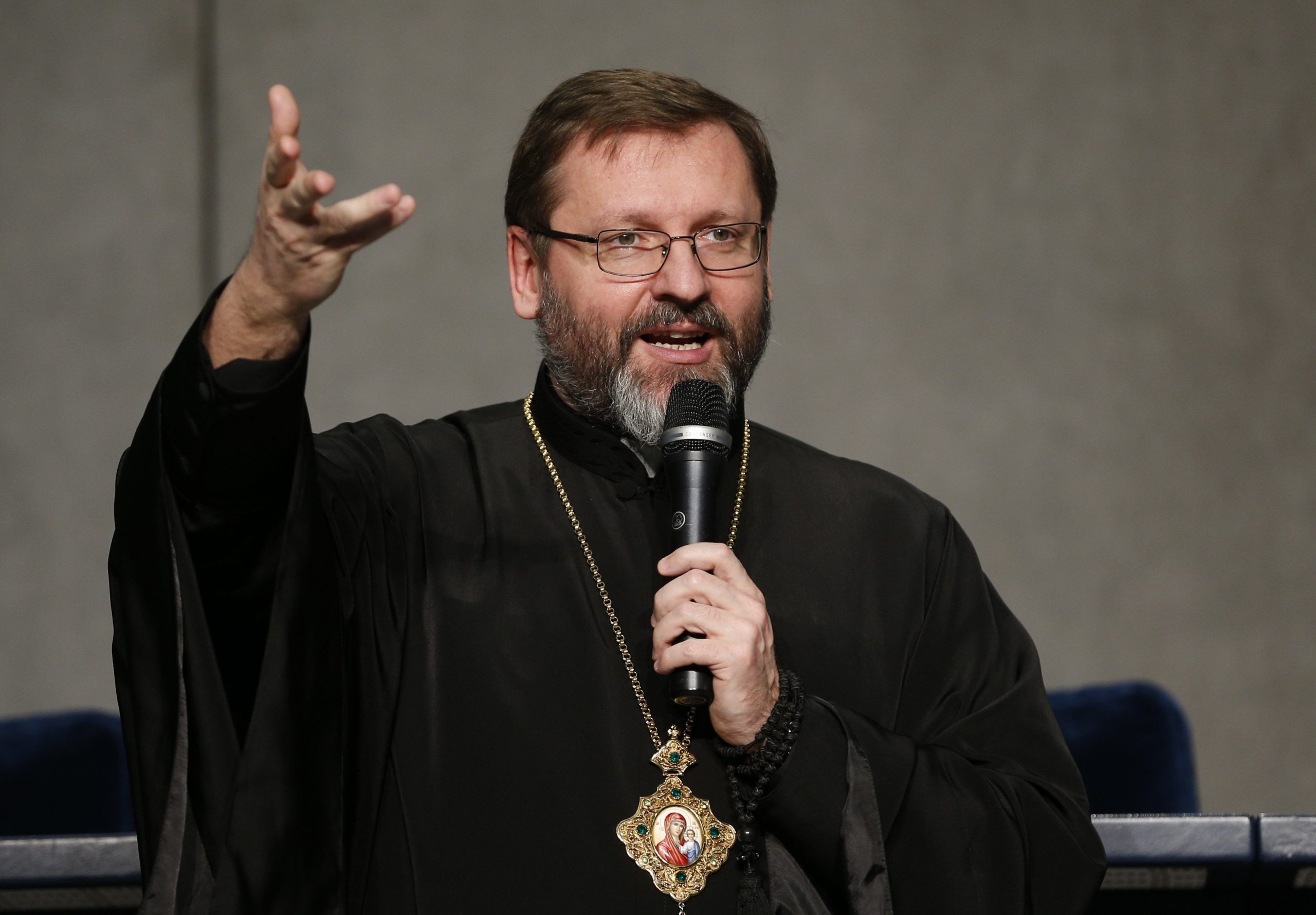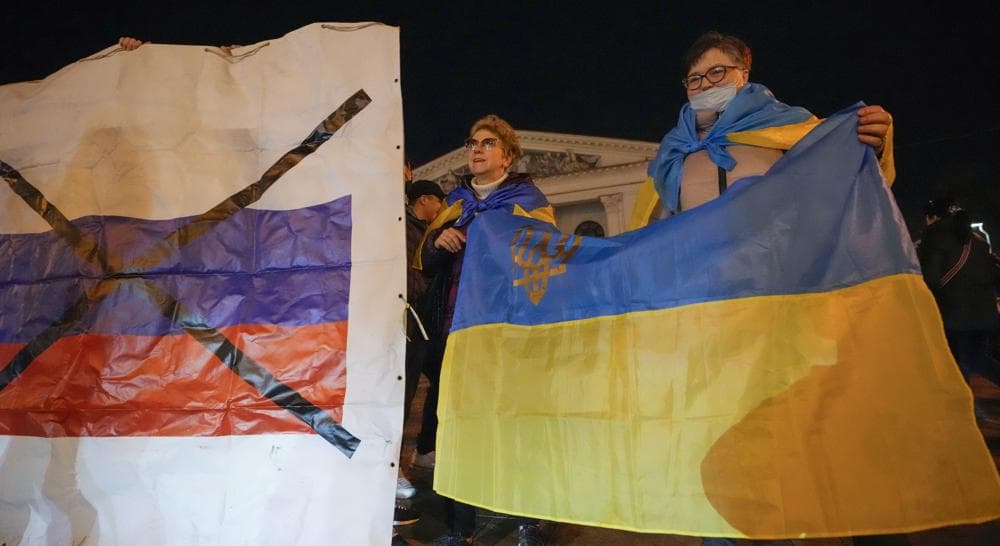ROME – Hours after Russian forces invaded Ukraine, Major Archbishop Sviatoslav Shevchuk of the Ukrainian Greek Catholic Church said the country’s sovereignty has been violated and warned that it could soon become “a death camp” if violence escalates.
In a letter addressed to Cardinal Gualtiero Bassetti of Perugia and president of the Italian Bishops’ Conference, Shevchuk the Russian government has “violated the sovereignty and territorial integrity of our country.”
“For eight years Ukraine is the innocent victim of a hybrid war waged by the Russian Federation,” which can no longer be defined as “a Ukrainian conflict or crisis, because it is a real attack on Europe, on security, on the future of the entire European continent,” he said.
Shevchuk was due to attend a meeting of bishops and mayors of the Mediterranean in Florence this week, however, in his letter, which Bassetti read aloud to all participants, he has opted to stay in Kiev to be with his people at this time.
In his letter, Shevchuk noted that as tensions have escalated between Ukraine and Russia in recent weeks, Europe has insisted on its commitment to “defend peace and stability as the most precious values.”

Unfortunately, “in these days we are witnessing the restoration of the right of the strongest,” Shevchuk said, noting that Ukraine “defends European values at the price of the blood of its own children.”
For months Russia has steadily been amassing troops at is border with Ukraine, demanding that NATO troops withdraw from eastern Europe and that the body pledge never to admit Ukraine or any other former Soviet nation as members to its membership.
Tensions between the two countries have been building steadily since Ukrainian citizens ousted pro-Russian president Viktor Fedorovych Yanukovych in 2014. Russia then annexed Ukraine’s southern Crimean Peninsula and backed separatists who overtook large swaths of the country’s eastern regions of Donetsk and Luhansk, and conflict has been unfolding ever since.
On Monday, Russian President Vladimir Putin announced his formal recognition of the People’s Republics of Donetsk and Lugansk, causing international backlash and a swath of sanctions.
Early Thursday morning, the Russian military launched a formal military assault on Ukraine, crossing into its borders and bombing military targets near big cities, prompting Ukrainian President Volodymyr Zelensky to invoke martial law and encourage citizens to stay indoors.
At least seven people are believed to have died in Thursday’s assault. So far in the past eight years of conflict, around 14,000 people have died and 34,000 others have been wounded, while two million more have been displaced as people have fled the conflict zone.
In his letter, Shevchuk said Ukrainians want peace, but warned that “the whole of Ukraine risks becoming a death camp.”
The government is attempting to negotiate, he said, but at the same time, “the people cry out to all humanity: Help us defend peace in Ukraine and Europe.”
Shevchuk asked those present to understand his absence from the Florence meeting, because “the current situation requires my presence in the country,” and he thanked the Italian Church for “the constant closeness to the Ukrainian people and its strong appeal for peace.”
He also asked participants to continue to pray “for the battered Ukraine.”
In his Wednesday, Feb. 23 general audience address, Pope Francis again voiced concern for the situation in Ukraine and announced that March 2, which is Ash Wednesday and marks the beginning of the Church’s Lenten season, will be a day of prayer and fasting for peace in the country.
The bishops gathered in Florence issued a statement expressing their “concern and pain” over what is happening in Ukraine and voiced “closeness to the Christian community of the country.”
The bishops welcomed the pope’s March 2, day of prayer and made an “appeal to the conscience of all those who have political responsibility, so that the weapons are silent.”
“Every conflict brings with it death and destruction, causes suffering to populations, and threatens coexistence between nations. Stop the madness of war!” they said, noting that many of them “know this scourge well and are therefore asking for peace with a single voice.”
In Rome, the Community of Sant’Egidio announced that it will hold a prayer vigil for Ukraine in the Basilica of Saint Mary in Trastevere Thursday night.
In a statement, the community said the vigil “is our first, spontaneous response to the tragedy that is unfolding at this time in Ukraine.”
“We cannot resign ourselves to war as a last word, but we must ceaselessly ask for peace. This is what we implore for the good of Ukraine and the whole world, addressing everyone, staring with those who have responsibility for nations. We invite everyone to join us to stop the madness of arms,” it said.
Follow Elise Ann Allen on Twitter: @eliseannallen













